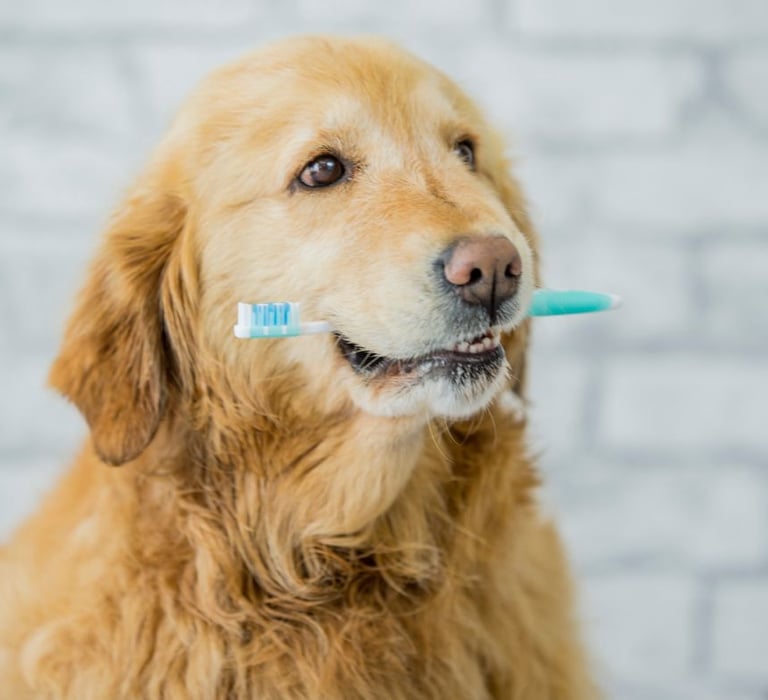Dental Care for Working Dogs


This post may have affiliate links. As an Amazon Associate, we earn from qualifying purchases from those links. This does not cost you anything and helps support the Sanctuary and all the animals in our care. This has no bearing on our reviews and comparisons. We will do our best to keep things fair and balanced to assist you in making the best decision for you and your animals.
Dental care and health in working dogs are crucial for their overall well-being and performance. Working dogs, like those trained for protection and patrol, have to endure various physical demands that can take a toll on their oral health. Hence, maintaining good dental hygiene is crucial for these dogs to prevent dental diseases and ensure their optimal performance.
One of the most important aspects of dental care in working dogs is regular prophylaxis procedures. Prophylaxis involves the removal of plaque, tartar, and other debris from the teeth and gums. Regular prophylaxis can help prevent dental diseases, such as gingivitis, periodontitis, and tooth decay. Additionally, it can also help identify any underlying dental problems, such as fractured or infected teeth, which can significantly impact a working dog's ability to perform their duties.
Dental radiographs, also known as X-rays, are essential for detecting dental problems that may not be visible during a routine dental exam. Radiographs can help identify issues such as root fractures, abscesses, and bone loss that may not be visible to the naked eye. Early detection of such problems can help prevent more severe issues from developing, potentially saving the dog from significant pain and discomfort.
Another essential aspect of dental care in working dogs is dental bonding. Dental bonding involves the application of a bonding agent to the surface of the tooth to help strengthen and protect it. This procedure is particularly beneficial for working dogs, as it can help prevent tooth fractures and other dental injuries that can occur during their training and performance activities.
It is important to note that dental procedures, including prophylaxis, radiographs, and bonding, must be performed under anesthesia for the safety and comfort of the dog. Anesthesia-free dentals are not only ineffective but can also be dangerous for the dog. Without anesthesia, it is impossible to perform a thorough cleaning or diagnostic procedure. Additionally, anesthesia-free dentals can cause undue stress and discomfort to the dog, potentially leading to behavioral issues and even injury.
In conclusion, dental care and health are crucial for working dogs to maintain optimal performance and overall well-being. Regular prophylaxis procedures, dental radiographs, and dental bonding are all essential components of dental care in working dogs. However, it is crucial to remember that all dental procedures must be performed under anesthesia for the safety and comfort of the dog. Anesthesia-free dentals do more harm than good and should be avoided at all costs. By prioritizing dental care in working dogs, we can help ensure that these incredible animals can perform their duties to the best of their abilities while staying healthy and comfortable.
Dental Care for Working Dogs
Dental care and oral health are essential for all working dogs, but especially those that are trained for patrol/protection.
